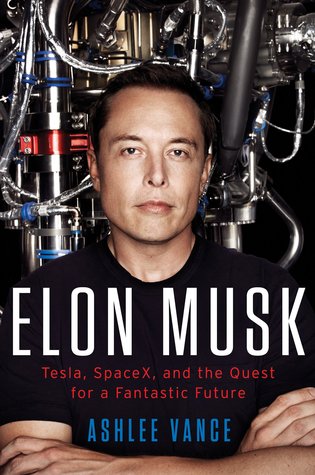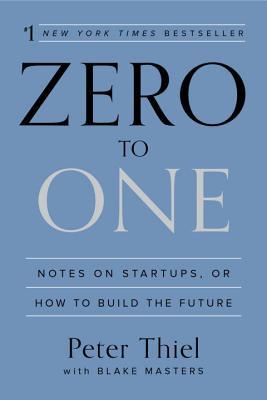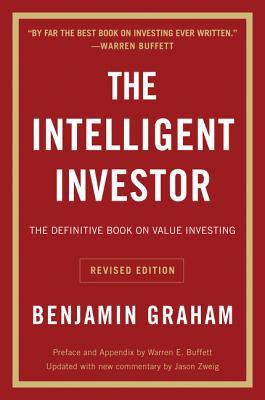The 5 Best Books I Read in 2015
This year, I completed my goal of reading 25 books. That’s more books than I’ve read in years prior combined. I almost exclusively read non-fiction because they focus more on how the world works.
I didn’t plan it but my reads this year mainly included personal finance and business. Each book I read taught me something I didn’t know. How leaders lead, why we need to take a second to breathe, how to sound smart describing alcohol, how the economy works.
Below are short reviews of five of my favorite books I read in 2015, in no particular order. I hope you find something you like. Please share your lists or opinions - I’m @KaranGoel.
Hatching Twitter: A True Story of Money, Power, Friendship, and Betrayal by Nick Bilton

A look into what goes on inside a tech startups as seen through the eyes of founders, investors, employees, friends and families. Often when you read startup news (blog, sites), all you see is money, power and fame. But what actually goes into making a startup successful is almost always left out - emotions and the politics that doesn’t care for emotions. As an entrepreneur myself, this book has now helped me realize the true meaning of starting up, about what it costs, and about the things that founders would not think about. Granted it’s only one example (Twitter, in case you couldn’t guess), it seems to be the story of most successful companies. I think this is one of the one book that will have the most impact on my life.
Venture Deals: Be Smarter Than Your Lawyer and Venture Capitalist by Brad Feld, Jason Mendelson

[Gifted by Ben Gilbert] A very high recommendation. If you know very little about venture capital and fund-raising, grab this book and read it cover to cover. Do it twice. If you have raised capital before, it’s better to just skim it. The book is very well written and does assume basic knowledge of tech startup concepts and vocab. I read a lot about startups online and offline, both from VC’s and entrepreneurs. But that content is so fragmented that sometimes you get conflicting views. That, IMO, is not so good. Brad and Jason (both VC’s) break down term sheets and share some gotchas. After almost each claim they make, is a little box with “Entrepreneur’s Perspective” - an entrepreneur shares his take on the claims to balance the scale. Even if you are not raising capital right now, it’s a must read to just seem smart and knowledgeable. Definitely recommended.
Elon Musk: Tesla, SpaceX, and the Quest for a Fantastic Future by Ashlee Vance

“WTF”. I have never said it this many times when reading a book. The ruthlessness with which Elon Musk works to achieve his impossible goals is impressive and a skill that takes a lifetime to learn, if ever. Ashlee Vance followed and interviewed Musk and people close to him, and gives a look into the insane life of a billionaire who doesn’t really care about the money - it’s about saving the humans.
I wanted the book to answer a question for me, “How do I become that?”. Honestly, it did not. And that’s not on the book, that just who Musk is - what he does and how he does it is not replicable. He is built in a way most of us are not. He has the passion most of us don’t. Elon Musk is like a robot whose mission is to save the mankind - he doesn’t care for anything or anyone who comes in the way of doing that.
The book has 11 long chapters - each one could be thought of as a well-researched and well-executed blog post that shines light to a different trait of Musk.
I highly recommend the book to anyone who:
- Just wants to know more about Musk
- Has or wants to start a company
- Who hates the way the world operates right now
- Admires Musk
Zero to One: Notes on Startups, or How to Build the Future by Peter Thiel, Blake Masters

Zero to One was one of the most hyped books of late 2014-early 2015. Aptly so; Peter Thiel is one of the brightest minds in the tech industry right now - a great investor, founder and thinker. Zero to One gives a chance to commoners like me to peek inside his head.
If I had to set the right expectations for a reader, I’d say this: this book won’t tell you how to start a business, but it will tell you how to think about starting a startup.
Peter makes some strong and bold claims in the book, and gives enough evidence to support them. But sometimes, his claims are impractical for a majority of the population (in a typical Peter fashion). For example, Thiel believes in creating monopolies in markets. But doing is neither easy not inexpensive. Most founders won’t look to do that. (To his credit, most monopolies are successes).
Peter Thiel has decades of experience and has seen the ups and the downs (dot-com and the housing crash). His advice is solid, but expect to disagree with this highly opinionated piece a lot.
The Intelligent Investor by Benjamin Graham, Jason Zweig

This is the bible of investigating. There’s a lot of advice in there, most of which is applicable to new and older investors. You don’t have to be rich to become rich, just smart and careful. I would not recommend this book to someone who’s completely new to the stock market and investing. Read up some 101 books first and then this content will be more useful. Do not skip Jason’s commentary as they add more value with updated examples.
One thing I did not like about Jason’s commentary was that he used the 1999 boom for almost all his examples. In my opinion that was an outlier and result of a lot of things, there’s definitely a lot to learn from it, but Jason should have diversified his examples a bit.
Honorable mention: Leaders Eat Last by Simon Sinek

A very fun book to read on leadership. If you’re read Tribes by Seth Godin, this book might not add too much value to you. Simon takes a pseudo-scientific and evolutionary approach to leadership in the workplace. He starts with biology and the chemicals that our brain secretes when we feel a certain way - endorphins, dopamine, serotonin, oxytocin. Most of the argument, then, relies on the “Circle of Safety”, a concept that anyone in the circle should feel safe from the dangers outside (and that there shouldn’t be any dangers inside the circle). Overall, it’s a fun and engaging book to read with a lot of stories. Do watch his talk with the same title: http://99u.com/videos/20272/simon-sinek-why-leaders-eat-last
Cover: Flickr